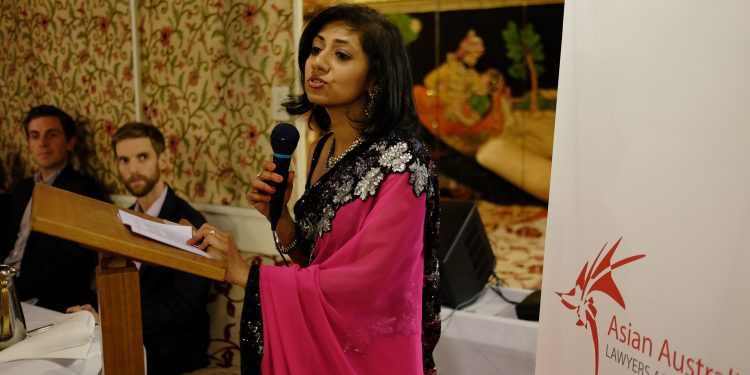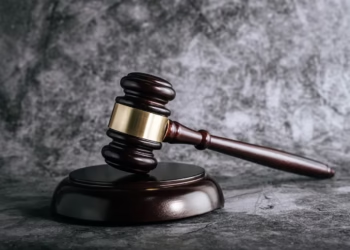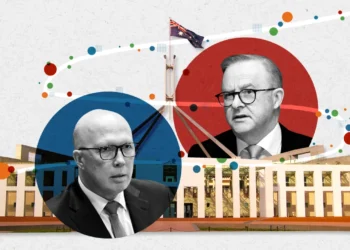Indian born Molina Asthana has been declared the President Elect for 2022 of the Law Institute of Victoria, the first woman of South Asian background to be elected to this position in the LIV’s 162 years of history. She spoke to NRI Affairs about her new role and her journey.
When will your new role as the President of the Law Institute of Victoria commence?
I was announced as the president-elect at this AGM in November and, at the next AGM if everything goes as per plan, it will be announced I’m going to be president and then I’ll take over after that in January 2023.
What does your new role entail and what change will it bring?
I have been on the board of LIV for five years, and the vice president this year. That role will continue as President and as the face of the organisation. Access for all to justice is a big priority for us as well.
Molina Asthana journey as a lawyer.
I come from a family of lawyers. My grandfather was a judge. His brother was the solicitor general of India. My father is a lawyer. A big part of my family is in the legal profession. So I grew up in that environment. The dinner table conversations were always about important legal cases and how they impacted the community. So, although I was never pushed, the family environment encouraged me to take up law as a profession. I always thought about it as a noble profession.
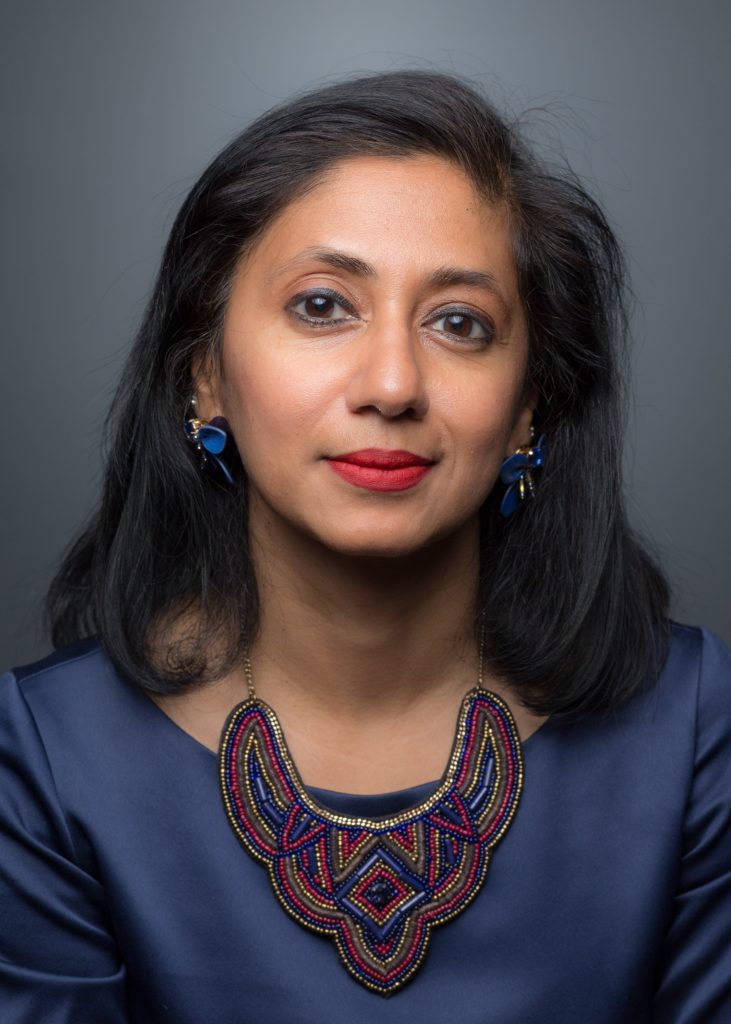
I started out in India and then moved to Australia. I did my masters in law here and have been practicing since then. After working for top tier firms in India and Australia, I worked with the Australian Government for nearly 11 years. I started my own practice three years ago. This has been my journey and the aspect of social justice has been my main motivation.
Follow NRI Affairs on Facebook and Twitter for latest updates.
Professional challenges as a migrant.
I came here after I got married. I was determined not to give up my profession, although I did not receive much encouragement in the beginning, even being told to change my profession. I worked hard and finally found my way into a top tier firm, which is the holy grail for people of migrant backgrounds. Then I moved into the government.
However, even in a top tier firm, the unconscious bias I faced is not something I had anticipated. It came as a shock to be starting from scratch. It is an extremely competitive environment and I had to work much harder to succeed. I then joined the Government, where I worked as a principal solicitor for many years. This work was really interesting but I realised I was never going to become a Victorian Government Solicitor with my migrant background. So I quit and started my own practice to serve people like myself – the migrant community. There have been challenges but I have learnt from them. Through my profession, I have been able to help people who have been inspired to take up the legal profession themselves to give back to the community.
Challenges as a woman
I call it the ‘double-glazed glass ceiling’ for women of colour as we face additional barriers. For example, the Victorian Government has gender diversity targets and employs 40 to 50 percent women. However, the percentage of women of colour continues to be low because there does not seem to be any targets for women of colour and they continue to be marginalised. The same goes for the private sector where organisations fail to look beyond gender diversity to include cultural diversity as well.

In your new role, how can you play a part in improving cultural diversity in other organisations?
As a peak body for the legal profession we can set standards and if we are seen as a diverse organisation we can be advocates for diversity in other organisations, both in the public and private sectors.
Another hat I wear is the National Vice President of the Asian Australian Lawyers Association. Through that we have been working on diversity in the legal profession as well, which is not just about having more diverse lawyers, it is also about access to justice because if clients don’t feel that they are represented well or that their issues are not dealt with because of cultural nuances, not being understood by judges or the police, they are likely then to feel that they don’t have access to justice.
Involvement in sports
When I moved to Australia, I was amazed by the sporting culture. Although I was never very active in sports, I started running and was so inspired I ended up running half marathons. I learnt that sport really builds your confidence, is a good way of adjusting to a new environment and becoming part of a community. When I started running, there weren’t enough migrant women involved in sport at that time. I started my own not-for-profit called Multicultural Women in Sport, and through that I have been working with sporting organisations helping them roll out programs to the community aimed at increasing participation of women of diverse backgrounds in sports. I have also been working with clubs to make them more welcoming spaces for culturally diverse backgrounds.
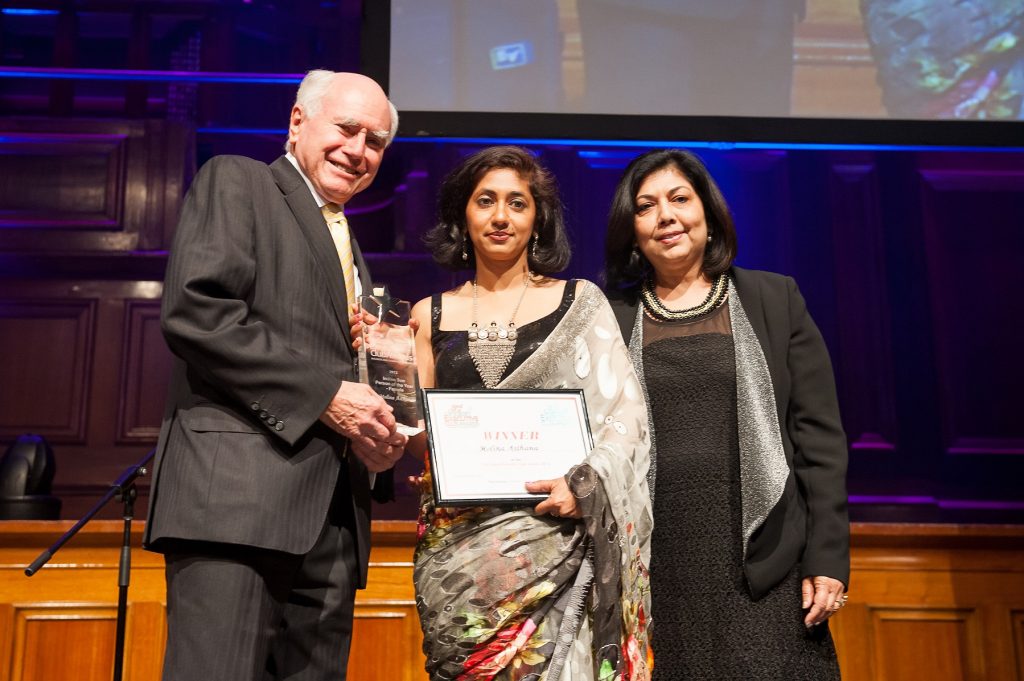
Also, I have been an ambassador for AFL, Cricket Australia, Commonwealth Games and Gene Hailey Women’s Health Week. I am on the boards of AFL South East Commission, Gymnastics Victoria and Table Tennis Victoria board, and a tribunal member for the Football Federation of Australia.
What next? A career in politics?
I don’t think so. I can speak my mind right now as an advocate and an activist. I enjoy my freedom to speak freely and politics restricts that freedom.
How can someone in your position raise awareness and also provide support when needed on other diaspora issues like family violence, racism, dowry, lack of diversity at workplace, caste/religious discrimination?
There are cultural nuances to these issues that the judiciary and the police do not understand. There is a greater need for lawyers who understand these issues to take up such cases. Also, it is important for someone in my position to be engaged in discussions when legislations for these issues are being framed and ensure that the points of view of a diverse set of people are taken into consideration.

